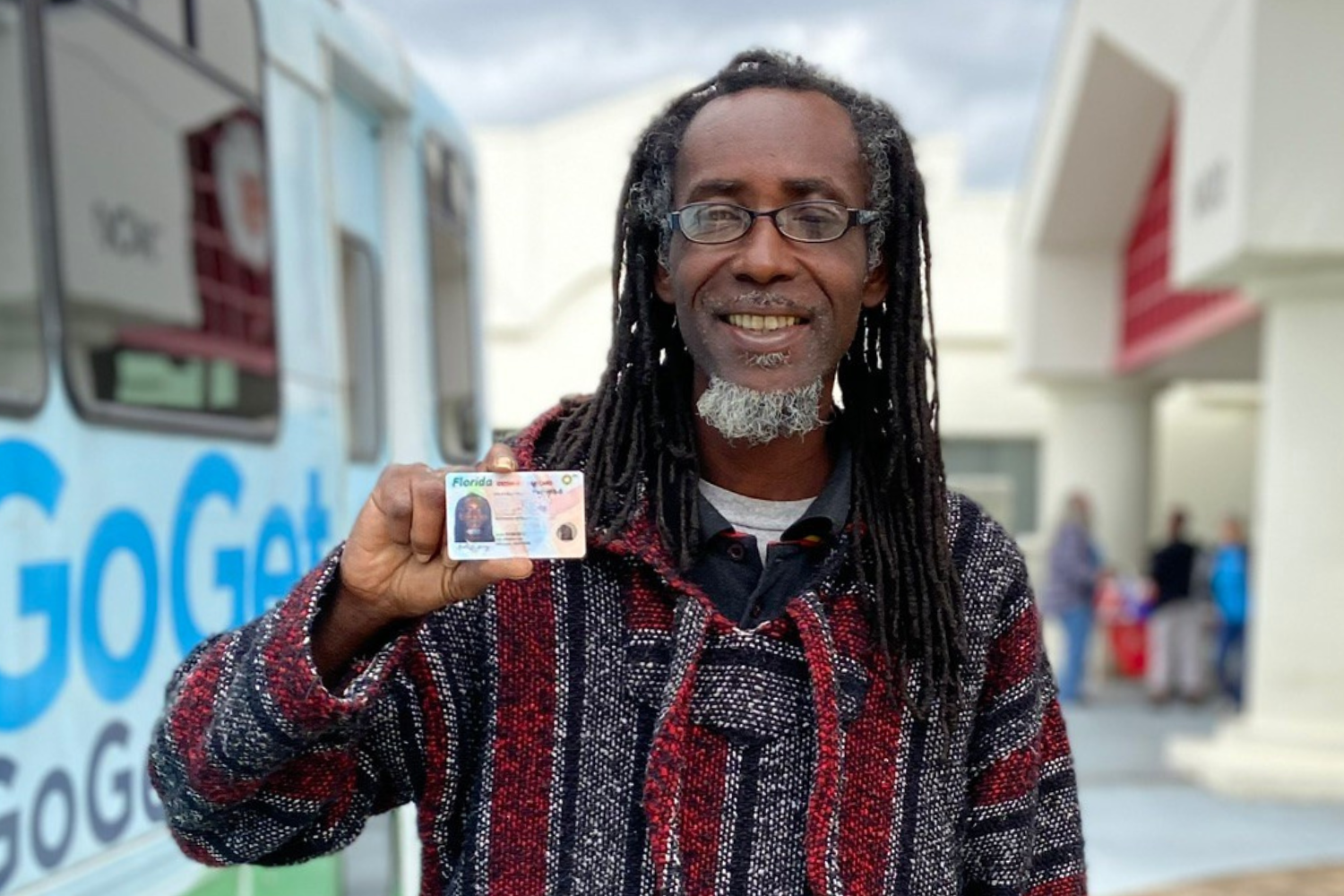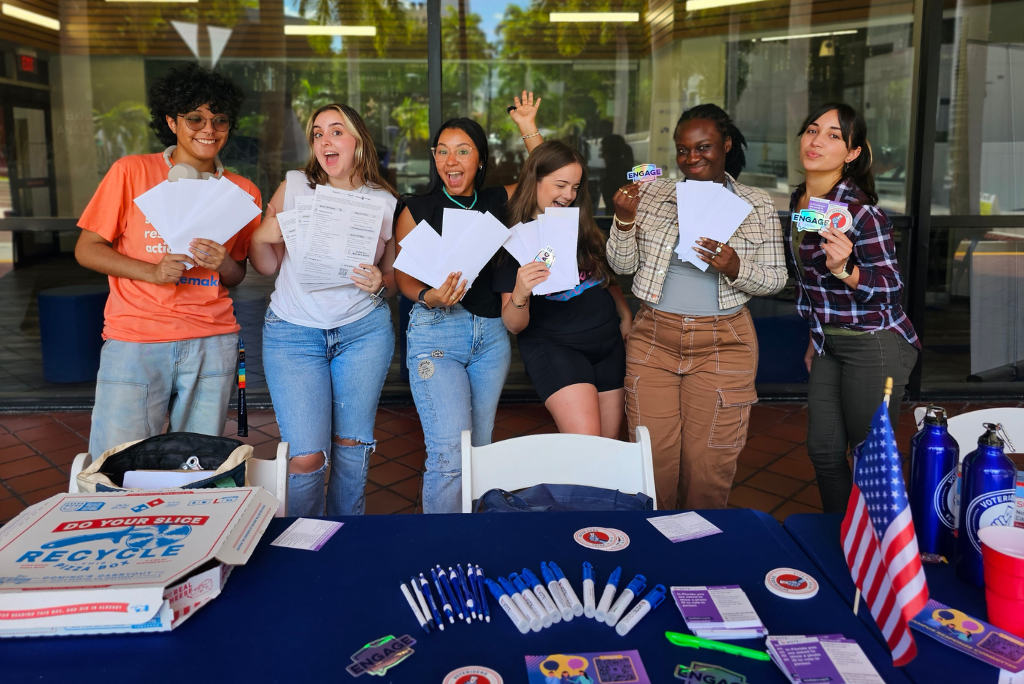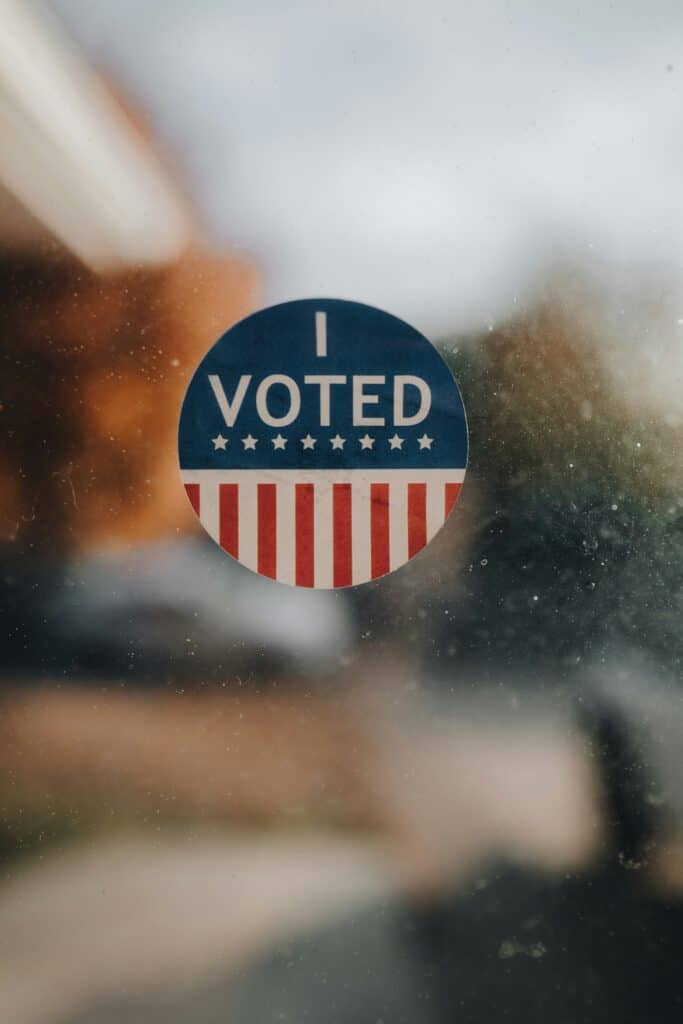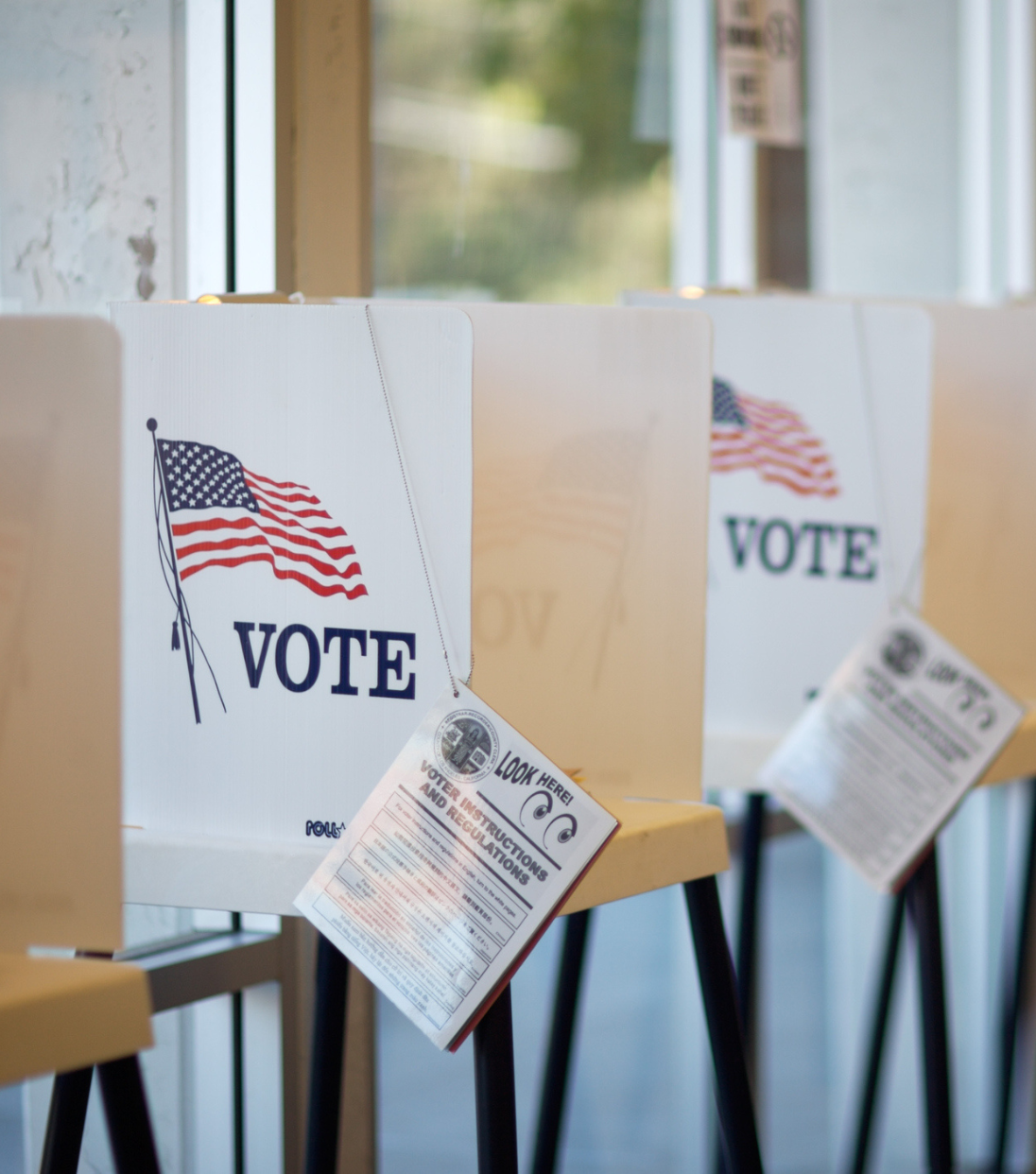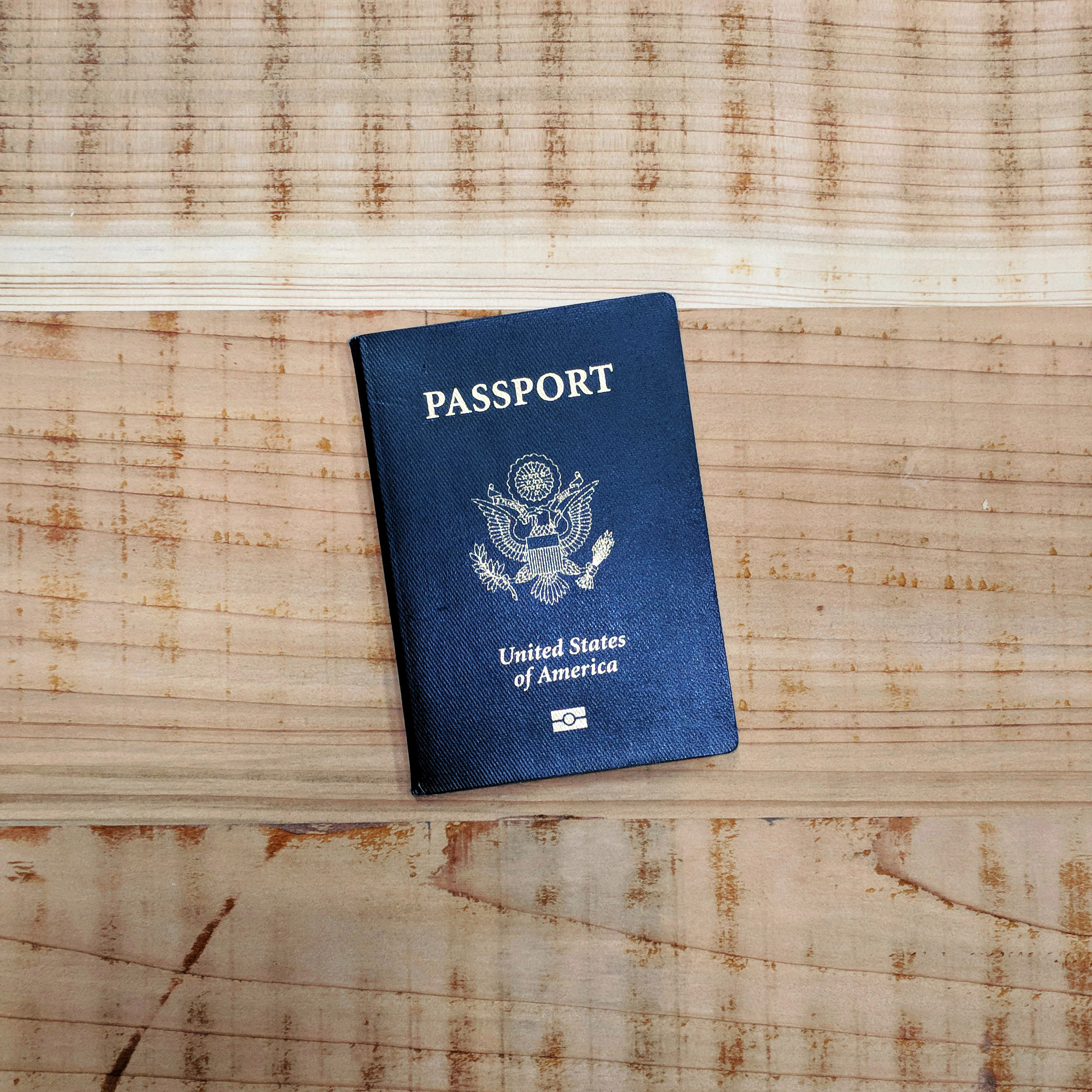
Documentary Proof of Citizenship and Voter ID Laws: Different Policies, Both Bad for Democracy
The United States was founded on the principle that power lies with the people. Voters have the right to choose who governs them, but right now, we live in a rigged system where politicians use restrictive voting laws and policies to choose their own voters.
False claims that waves of noncitizens were voting in the 2024 general election led to a surge in new legislation introduced in 2025 that would require voters to provide documentary proof of citizenship (DPOC) before registering to vote. These DPOC laws would require all voters to prove their citizenship with a document such as a passport or birth certificate to register to vote or update their voter registration.
Similarly, voter ID requirements have become increasingly common thanks to malicious narratives fueled by election deniers, with as many as 21 states adding new or stricter voter ID laws since the 2020 election. In 38 states, simply registering to vote is not enough—you may also need to confirm your identity with a specific form of ID in order to cast your ballot in person or by mail.
Supporters of voter ID and DPOC laws claim that these laws are “common-sense” requirements necessary for keeping our elections “secure” and preventing “voter fraud.” The reality is, these laws are a solution in search of a problem because voter fraud is virtually nonexistent across the millions of votes cast in every election. Our existing voting laws already ensure our elections are secure and that only US citizens are voting. Voting or even registering to vote as a noncitizen is a serious crime that can result in prison time or deportation—the numbers prove it’s simply not a risk people are willing to take.
Documentary Proof of Citizenship vs. Voter ID
Documentary proof of citizenship laws require voters to prove their US citizenship with a document such as a US passport or birth certificate in order to register to vote. DPOC laws also apply to voters who are already registered but who make a change to their registration. For example, if you move, you would need to provide proof of citizenship just to stay registered to vote.
Voter ID laws, on the other hand, become an important factor after voter registration. It is an additional requirement to those required for proving identity and state residency when registering to vote. States with a voter ID law either require or request that voters confirm their identity using a specific form of identification before they cast their ballot. Every state has different ID requirements for voting, so the ID you need depends on where you live. Some states require an unexpired photo ID or a government-issued ID that includes your address and signature, while other states will accept a utility bill or bank statement as proof of identity. Some states also have a “non-strict” ID law, which means that voters without an accepted ID can still vote by signing a form confirming their identity.
Another important distinction between documentary proof of citizenship requirements and voter ID requirements is that most forms of ID that can be used as voter ID do not prove US citizenship. While driver’s licenses are the most commonly used and accepted form of voter ID, only five US states currently issue driver’s licenses that indicate US citizenship on them.
The fact is neither voter ID nor DPOC laws are about security at the ballot box—they’re part of a broad, well-funded, and deliberate effort to keep particular groups of Americans from voting.
Join the fight!
Take action, stay informed, and help us make sure every eligible voter is heard at the ballot box.
- Fight back against restrictive voting laws and support voters who need it! VoteRiders.org/Action
- Be the first to know about election laws and policies, and how states can protect our voting rights: bit.ly/map-newsletter
What states require documents proving citizenship to register to vote?
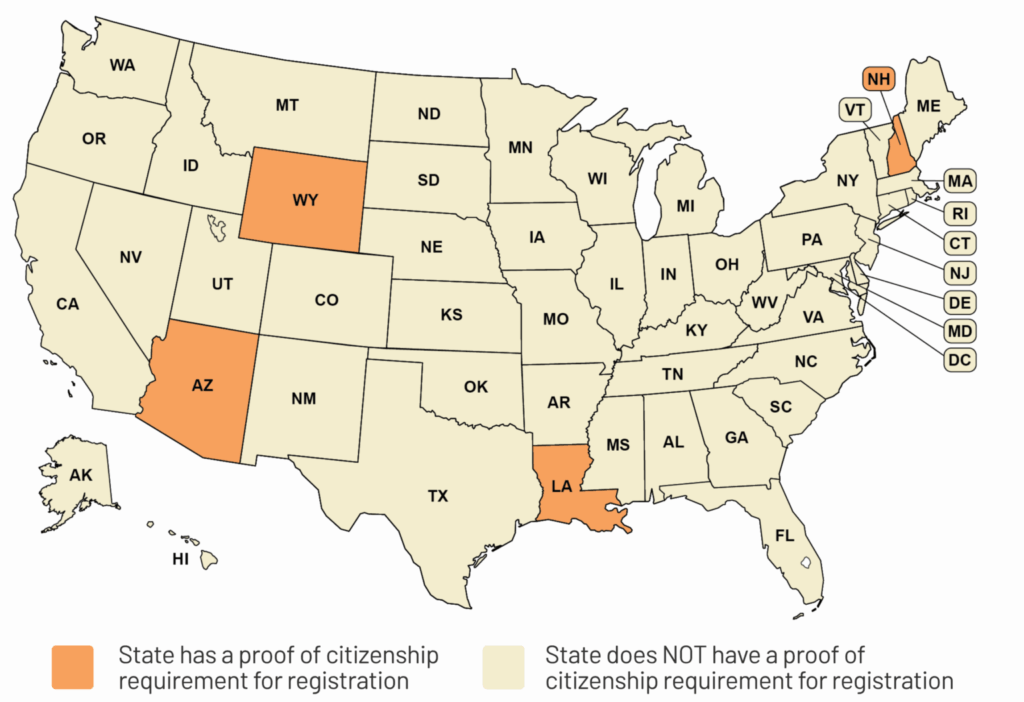
Which states require an ID to vote?
38 states have ID requirements, and since the 2020 election alone, 21 states have either added a new voter ID law or made their existing voter ID law even stricter. Voter ID is an additional requirement to those required for proving identity and state residency when registering to vote.
After registering, many states will send voters a card a few weeks later that confirms their voter registration. While some states do accept this voter registration card as a form of voter ID, many voters are asked or required to show a second form of ID to cast their ballot.
States with ID Requirements for Voting
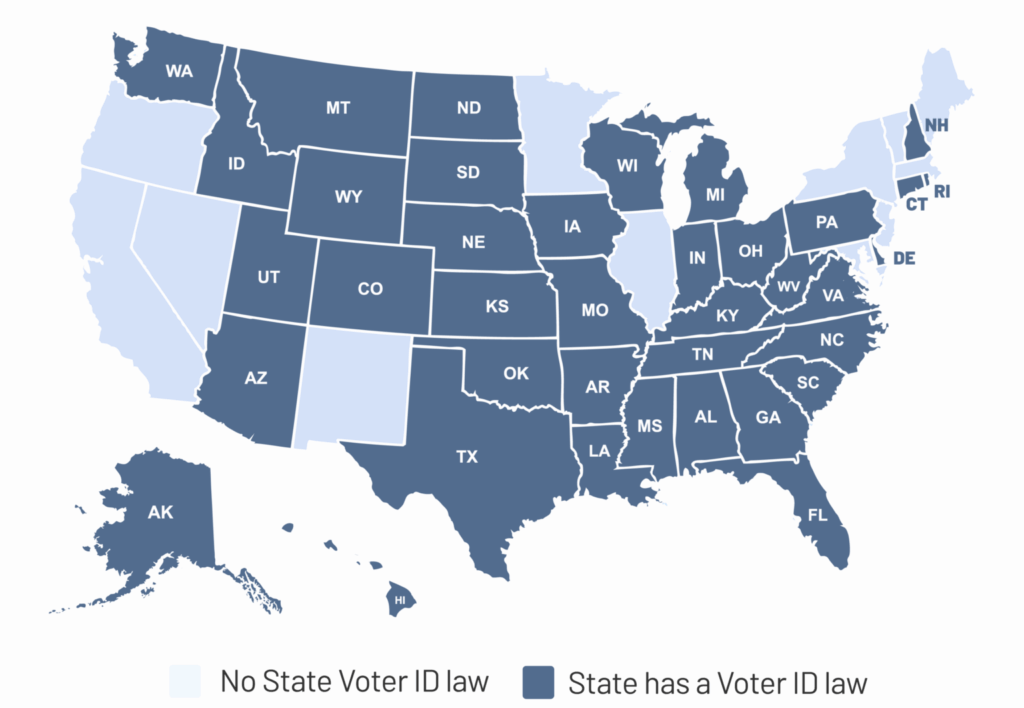
What impact do voter ID and documentary proof of citizenship laws have on our democracy?
As more states adopt restrictive ID policies and proof of citizenship requirements continue to gain momentum, the threats posed by these policies are higher than they’ve ever been. The evidence is clear that these laws create intentional barriers to voting, reduce voter turnout, and cause harm, particularly to marginalized groups.
The bottom line is that these laws are harmful to our democracy because millions of eligible voters don’t have easy access to ID documents. VoteRiders’ research shows that 34.5 million Americans don’t have a current state-issued ID, and 21 million—1 in 10 eligible voters—don’t have easy access to a US birth certificate or passport.
Real Stories of the Impact of DPOC and Voter ID
You might be wondering how it’s possible that tens of millions of people don’t have access to something as critical as an ID. It’s because obtaining an ID and other identification documents can be extremely difficult.
To get an ID, you first need to have underlying documents like a birth certificate or Social Security card. For many people, these documents have been lost or destroyed, or were never issued in the first place. For example, Nicole lost her birth certificate during a move, and Denesha’s birth certificate was destroyed in a house fire. Replacing underlying documents requires navigating bureaucracy and paperwork that can be complicated and confusing, as it was for Edward, who had to go to the DMV 20 times before he got his ID. These documents can also be very expensive. On average, a copy of a birth certificate costs $50, which is more than five hours of minimum wage work in many states. Obtaining ID documents may also require spending hours at an ID-issuing office, which can be hard to reach, especially if you live in a rural area or don’t have reliable transportation, like April, who had to wait weeks until someone could give her a ride to the DMV.
The truth is that all of us are at risk of not having a specific government-issued ID or other identification paperwork, and eligible voters should never lose the fundamental right to vote as a result.
Research and Statistics on DPOC and Voter ID
Voter ID and DPOC laws block millions of eligible voters from the ballot box, either because they lack the required documents or because they’re confused about their state’s voting requirements. Research from VoteRiders and the Movement Advancement Project (MAP) has repeatedly demonstrated that historically marginalized communities including Black and Brown voters, women, trans and nonbinary people, low-income people, people experiencing homelessness, young people and students, senior citizens, disabled people, and people with a high school degree or less are less likely to have ID and therefore are significantly and disproportionately impacted by ID laws.
Like voter ID laws, documentary proof of citizenship requirements disproportionately harm voters of color. While 8% of white American citizens cannot easily secure a birth certificate or passport (which is already a lot!), almost 11% of citizens of color face the same issue.
By preventing eligible voters from casting their ballots, or making it harder for some to do so, documentary proof of citizenship and voter ID requirements make our country weaker, less representative, and less inclusive. The way to build trust in our electoral processes is by ending the constant change of the rules of the game and attempts to make it harder to vote. A truly inclusive democracy ensures that elections are accessible to all.
What can YOU do to protect and expand voting access?
It’s up to all of us to fight for our future! VoteRiders partners with thousands of partners and volunteers across the country to eliminate ID barriers to voting, educate voters on ID requirements for registration and voting, and provide free, direct help to any voter who needs an ID.
The Movement Advancement Project (MAP) is an independent, nonprofit think tank that provides rigorous research, insight, and communications that help make our democracy more inclusive and equitable.
Together, VoteRiders and MAP work to educate the public on the harms of voter ID and DPOC laws and build a better future for all of us.
